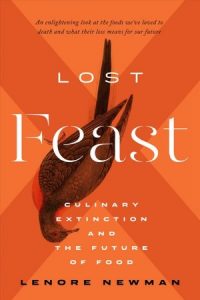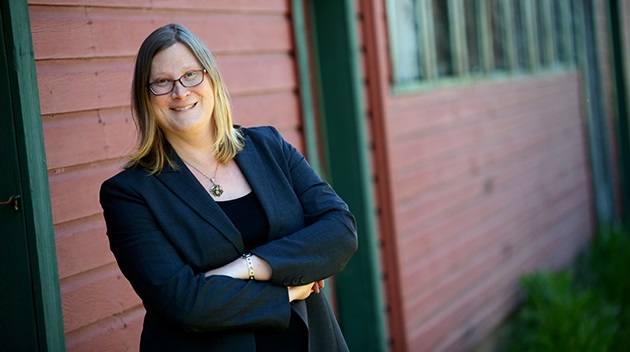Dr. Lenore Newman, Director of the Food and Agriculture Institute and Associate Professor in the Department of Geography at UFV was recently interviewed by the National Public Radio (NPR) in the USA in advance of the publication of her next book, “Lost Feast: Culinary Extinction and the Future of Food”. Her book is due out on October 8, 2019.
 In her book, Dr. Newman explores how human activity has limited our food options and still threatens what we are able to put on our plates.
In her book, Dr. Newman explores how human activity has limited our food options and still threatens what we are able to put on our plates.
“I think the important lesson that I took away from writing this book was realizing that things can — and do — go extinct even if we really love them,” Newman told NPR. Silphium, a plant that was critical to Roman and Egyptian culinary society, is one of many examples of foods we loved that are now considered extinct. The stalk of the silphium plant was used to flavor food, and its leaves were fed to sheep and cattle to improve the flavor of their meat. Newman says the extinction of silphium taught us that loving a food is not enough to keep it in existence: “We actually have to fight to be conscientious, especially as we have a bigger impact on the planet,” she says. “We need to be a little more thoughtful about how we eat.”
Read more of Dr. Newman’s interview with Luisa Torres from the National Public Radio



